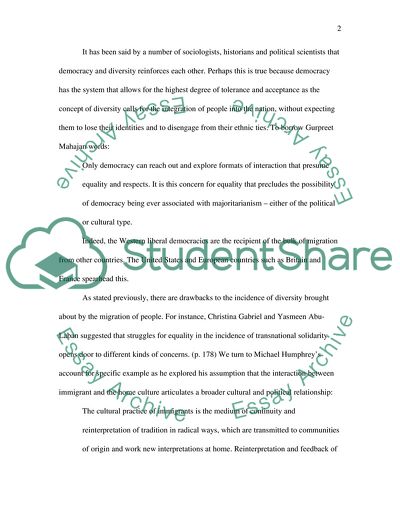Cite this document
(How Far Can Liberal Democracy Embrace Diversity Literature review, n.d.)
How Far Can Liberal Democracy Embrace Diversity Literature review. https://studentshare.org/politics/1707915-how-far-can-liberal-democracy-embrace-diversity-does-the-coexistence-of-groups-of-people-with-different-histories-cultures-and-identities-require-more-than
How Far Can Liberal Democracy Embrace Diversity Literature review. https://studentshare.org/politics/1707915-how-far-can-liberal-democracy-embrace-diversity-does-the-coexistence-of-groups-of-people-with-different-histories-cultures-and-identities-require-more-than
(How Far Can Liberal Democracy Embrace Diversity Literature Review)
How Far Can Liberal Democracy Embrace Diversity Literature Review. https://studentshare.org/politics/1707915-how-far-can-liberal-democracy-embrace-diversity-does-the-coexistence-of-groups-of-people-with-different-histories-cultures-and-identities-require-more-than.
How Far Can Liberal Democracy Embrace Diversity Literature Review. https://studentshare.org/politics/1707915-how-far-can-liberal-democracy-embrace-diversity-does-the-coexistence-of-groups-of-people-with-different-histories-cultures-and-identities-require-more-than.
“How Far Can Liberal Democracy Embrace Diversity Literature Review”. https://studentshare.org/politics/1707915-how-far-can-liberal-democracy-embrace-diversity-does-the-coexistence-of-groups-of-people-with-different-histories-cultures-and-identities-require-more-than.


